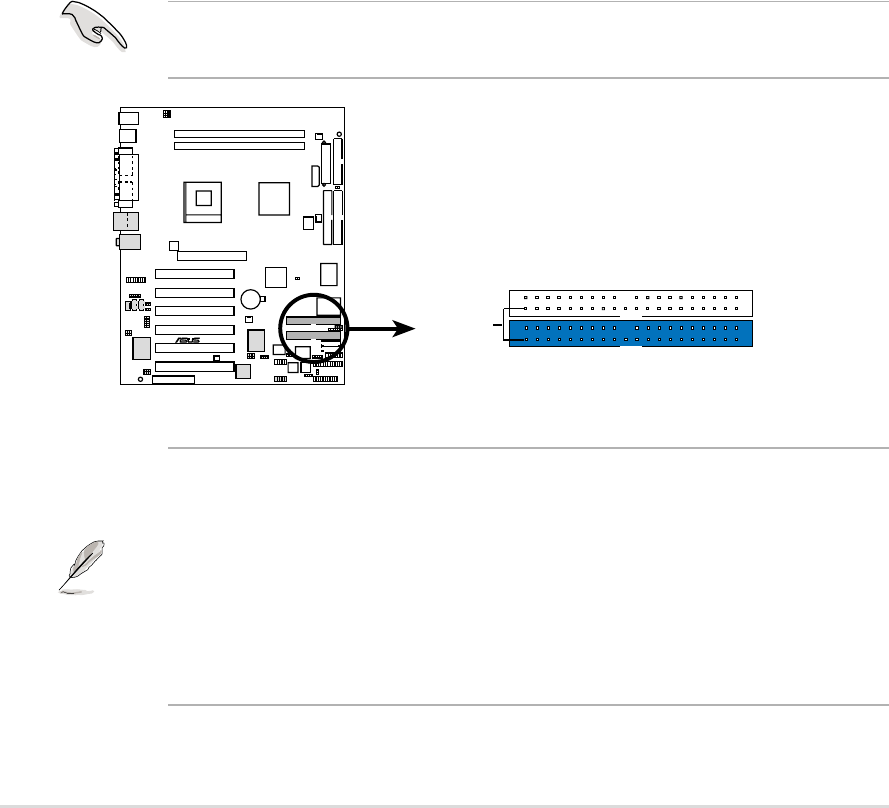
36
Chapter 2: Hardware information
10. Primary RAID IDE (Blue) / Secondary RAID IDE (Black) IDE
Connectors (Two 40-1 pin PRI_RAID and SEC_RAID)
The P4T533 motherboard is supplied with two extra onboard IDE connectors:
one Promise IDE1 and one Promise IDE2. Use them to setup the RAID 0 or
1 arrays and to support extra ATAPI devices. A total of eight hard-disks, two
on each IDE connector, can be connected to the A7V333; but, only two can
function in a RAID array. See 5.4 Software Setup for more information
about setting up a RAID array.
The Primary and Secondary RAID IDE connectors support the IDE hard disk
ribbon cables supplied with the motherboard. Connect the cable’s blue
connector to the motherboard’s primary IDE connector (recommended) or
the secondary IDE connector. Connect the opposite end of the cable to your
UltraDMA133/100/66 device (hard disk drive). If a second hard disk drive
is connected, you may reset its jumper to Slave or Master/Slave mode. Non-
UltraDMA133/100/66 devices should be connected to the secondary IDE
connector. BIOS supports specific device bootup (see 4.6 Boot Menu.)
UltraDMA/133 is backward compatible with DMA100/66/33 and with all with
existing DMA devices and systems.
NOTE! For high-performance and RAID 0 or 1 set ups, always setup
two hard disks with two separate ribbon cables, one for the primary IDE
connector and another for the secondary IDE connector. Usually, both
disks must be set to the Master settings. Also, you may install one
operating system on an IDE drive and another on a SCSI drive and select
the boot disk through BIOS. (See 4.6 Boot Menu.) Do not connect any
other types of IDE devices to the Promise IDE connectors; they support
hard disk drive devices only.
P4T533
®
NOTE: Orient the red markings
(usually zigzag) on the IDE
ribbon cable to PIN 1.
SEC_RAID
PIN 1
PRI_RAID
P4T533 RAID Connectors
IMPORTANT! UltraDMA100 and UltraDMA133 IDE devices require a
40-pin 80-conductor cable and RAID arrays only operate with such cables.


















